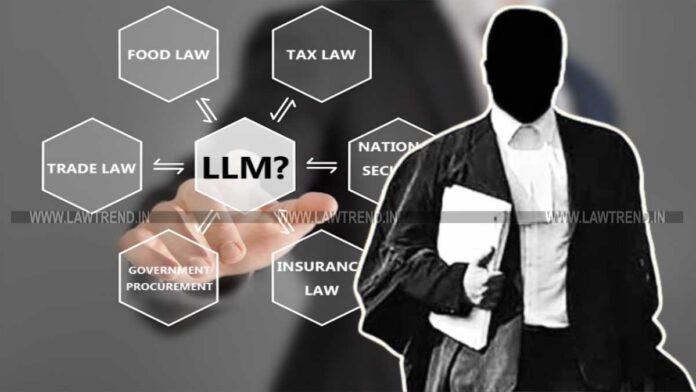In a significant development concerning postgraduate legal education in India, the Bar Council of India (BCI) has decided to constitute a high-level committee headed by a former Chief Justice of India to review and recommend a comprehensive framework for the equivalency of one-year and two-year LL.M. degrees.
The announcement follows a joint stakeholder consultation convened by the BCI on April 22, 2025. The meeting was chaired by Professor (Dr.) V.C. Vivekanandan, Vice-Chancellor of Hidayatullah National Law University and President of the Consortium of National Law Universities. It was attended by Vice-Chancellors, Deans, and senior faculty members from NLUs, Central and State universities, private law schools, and affiliated colleges.
The decision to form the committee comes in the wake of directions issued by the Supreme Court on February 11, 2025. The apex court had raised concerns over certain stipulations in the BCI’s Legal Education Rules, 2020, particularly the mandate requiring holders of one-year LL.M. degrees to undergo one year of teaching experience to have their degrees recognised for academic positions in India.
According to a press release by the BCI, the committee’s mandate will encompass:
- Reviewing and recommending frameworks for equivalency between one-year and two-year LL.M. degrees.
- Designing appropriate structures for pedagogical training.
- Harmonizing postgraduate curricula across institutions.
- Identifying mechanisms for ensuring nationwide compliance with minimum academic and teaching standards.
In addition to the former Chief Justice who will chair the committee, a distinguished academician will be appointed as the Co-Convenor. The panel will also include representatives from various stakeholders, including national and private law universities and other legal education institutions.
During the April 22 meeting, several NLUs expressed support for the continuation of the one-year LL.M. programme but emphasized the need to enhance its academic rigour and depth. Some participants advocated embedding pedagogical training within the one-year structure itself. However, others raised concerns that such integration might render the programme unfeasible and lead students to opt for the traditional two-year LL.M. instead.
The matter remains under judicial consideration. The Supreme Court is currently hearing challenges to the BCI’s Legal Education Rules, 2020, which also include a provision disallowing recognition of one-year LL.M. degrees from foreign universities unless supplemented by one year of teaching as visiting or clinical faculty in India.
In an earlier hearing in March 2021, the BCI had assured the Court that it would not implement the provisions abolishing the one-year LL.M. programme as per the Bar Council of Legal Education (Post Graduate, Doctoral, Executive, Vocational, Clinical and other Continuing Education) Rules, 2020, during that academic year. However, subsequent circulars issued by the BCI required mandatory teaching experience for recognition of such degrees, thereby reigniting the debate.
Currently, the BCI maintains that one-year LL.M. degrees will only be considered equivalent to two-year degrees for teaching positions if the candidate has completed a six-month teacher training programme. For higher academic roles such as Associate Professor or Professor, an additional six months of training is suggested—even for PhD holders.




